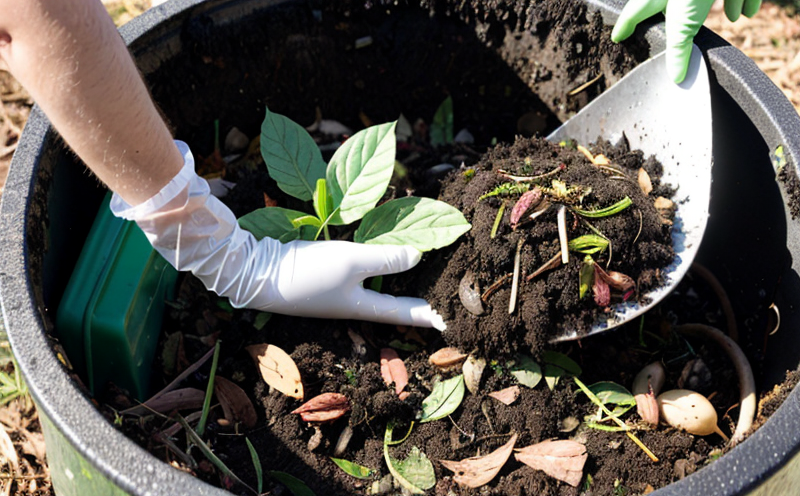ASTM E2562 Rapid Microbiological Testing in Waste Materials
The ASTM E2562 standard provides a rapid microbiological method for evaluating the microbial quality of waste materials. This service is designed to assist laboratories and industries that need to ensure compliance with regulatory standards, particularly those related to waste management and composting processes.
ASTM E2562 is widely used in environmental testing labs where quick turnaround times are critical. The standard specifies a method for determining the total viable plate count (TVPC) of microorganisms on or in waste materials using a modified MRS (Mycoptic Acidified Peptone Water) medium and incubation at 30°C to 35°C for up to 14 days.
The method is particularly useful for industries that produce compost, organic fertilizers, and other bio-based products. By ensuring the microbial quality of waste materials, this service helps prevent contamination in subsequent processes, enhances product safety, and supports compliance with environmental regulations.
One of the key features of ASTM E2562 is its ability to provide rapid results compared to traditional culture methods. This allows for quicker decision-making and intervention when necessary. The standard also emphasizes the importance of proper specimen preparation and aseptic techniques to ensure accurate and reliable results.
The testing process involves several steps, including sample collection, transportation, and preservation. Samples are typically collected from various waste streams or composting facilities and transported under controlled conditions to prevent contamination. Upon receipt at the laboratory, samples undergo preliminary examination and processing, followed by inoculation into the MRS medium.
During incubation, it is crucial to maintain consistent temperature and humidity conditions to ensure optimal growth of microorganisms. Once the incubation period ends, the colonies are counted using a colony-forming unit (CFU) method. This involves transferring colonies from the agar plates onto nutrient-rich media for further analysis.
The results obtained through ASTM E2562 provide valuable insights into the microbial content and potential risks associated with waste materials. These data can be used to improve process control, enhance product quality, and ensure compliance with international standards such as ISO 14001 for environmental management systems.
By leveraging this rapid microbiological testing method, industries can gain a competitive edge by maintaining high-quality products while minimizing risks. The service also supports the development of sustainable practices within waste management and composting sectors.
| Industry Sector | Application |
|---|---|
| Waste Management | Evaluation of microbial quality in waste materials for composting. |
| Agriculture | Determination of viable microorganisms in organic fertilizers and soil amendments. |
| Biofuel Production | Assessment of microbial contamination in biofuel feedstocks. |
| Pharmaceutical Manufacturing | Monitoring of microbial levels in pharmaceutical waste streams. |
| Environmental Consulting | Conducting environmental impact assessments related to waste management practices. |
In conclusion, ASTM E2562 rapid microbiological testing is an essential tool for ensuring the microbial safety and quality of waste materials. By adhering to this standard, laboratories can provide accurate and reliable results that support compliance with regulatory requirements and enhance product integrity.





